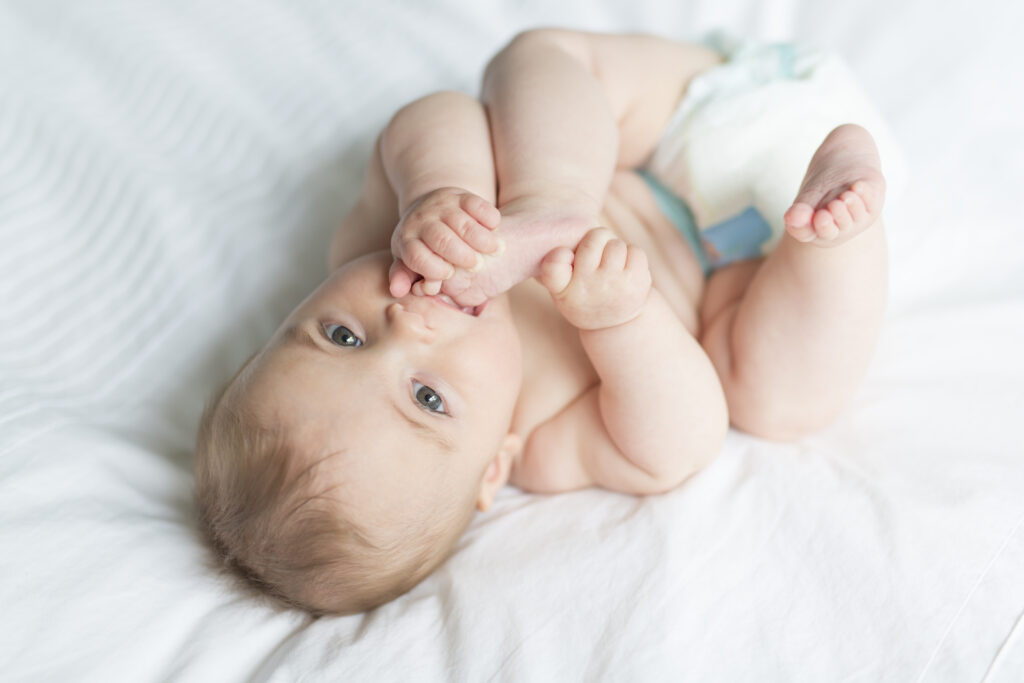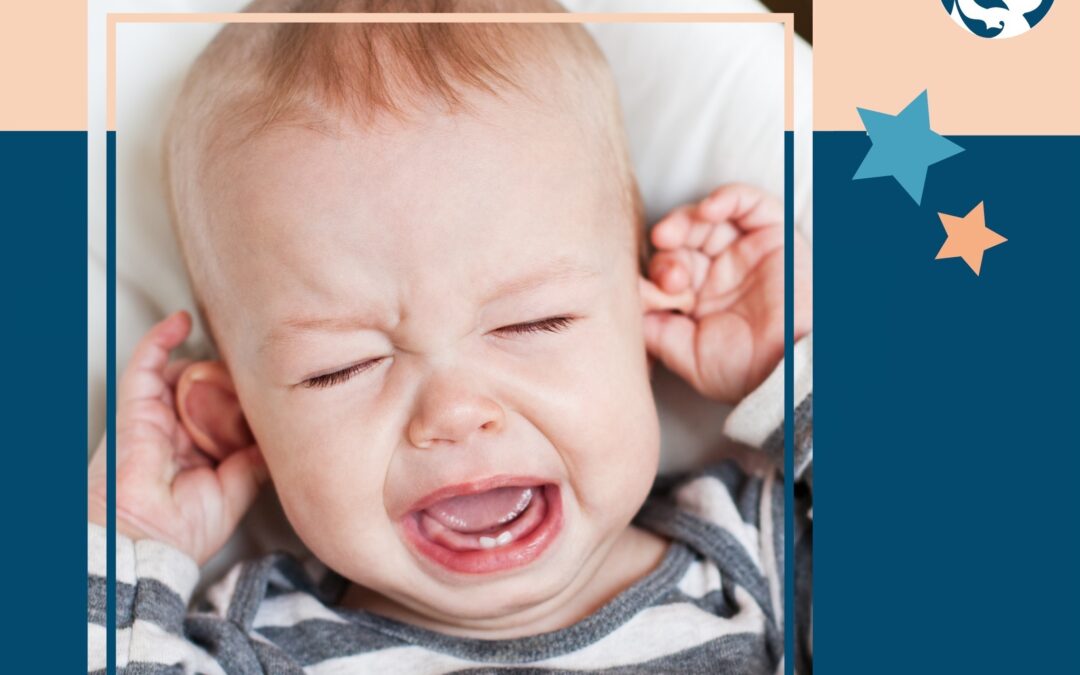Around six months of age, teeth can begin to emerge. This is a very expected moment (and at the same time dreaded!) by parents. At this stage, too, most parents will end up blaming teething for any discomfort or routine misadjustment that appears in their baby.
Common thoughts:
“My baby has a fever! It must be the tooth coming in.”
“His poop is softer than usual. It could be the tooth! I have heard that teething causes diarrhea.”
“My baby is irritable, crying more. Ah, he is certainly irritated by sore gums from teething.”
Finally, it is a fact that teething brings discomfort to the baby, but keep in mind that fever and diarrhea, for example, are not symptoms caused directly by teething. But because the child puts his hand to his mouth more during this period, being more subject to associated viral infections.

Why does teething interfere with the baby’s sleep?
It is natural for the baby to wake up at night due to discomfort, and, of course, the natural reaction of moms and dads when they hear their baby cry at night is to do whatever is possible to calm him down. However, if you start (or go back) rocking him to sleep, it will make the baby unable to go back to sleep without this support.
Suppose you have successfully taught your baby to fall asleep on his own for a few weeks, and he starts to show a regression. In that case, that is, he has some awakenings at night with some difficulty in going back to sleep, the natural process is for you to look for the reason that is causing him to revert to his old habits and, of course, the possible arrival of a tooth will be a quick and easy explanation.
Undoubtedly, in pain and crying, no mother or father will leave the baby uncomfortable. If you decide to give him external support (rocking him, breastfeeding him, etc.) to calm him down when you least expect it, a year or more will have passed, and you will still be offering that comfort with the justification of the arrival of a new tooth since until close to 3 years old they will still have teeth coming in.

So what to do?
Here are some essential points you should keep in mind before giving up on healthy sleep habits (sleep training) because of teething:
• Teething symptoms last for about eight days, three days before the tooth appears in the gum, the day the tooth appears in the gum, and four days after. Therefore, if your baby has been waking up at night for two weeks or more, teething is no longer the reason. Your baby is probably experiencing other discomfort or has learned that crying will bring his favorite person into the room, and the comfort (external support) will help him sleep.
• Teething symptoms are not as horrible as they seem or as parents imagine. Nature is wise, and babies’ gums move out of the way to allow teeth to arrive. Proof of this is that there is no bleeding when the tooth comes in. Uncomfortable but not scary.
Several recent studies prove that sleeping difficulty is not the main “symptom” of teething. The most frequent alterations are irritability (80% of cases) and feverish state (74%). The change in sleep is among the most reported changes, but it is not the main one.
So parents, remember that a new tooth will not be the villain of your baby’s awakenings. I am not saying that this event should be ignored, nor should you leave your baby crying or uncomfortable. Just know that he will be much more relaxed during this process if he gets a good night’s sleep. And you too!
If you want more information about the benefits of sleep, how to deal with these situations, and also learn more about the daily support I offer to families, I’ll be happy to assist you!
Carla Picolli
carla@nightnight.co.nz
#nightnightsleepconsulting #babysleep #restedchildhappyfamily

